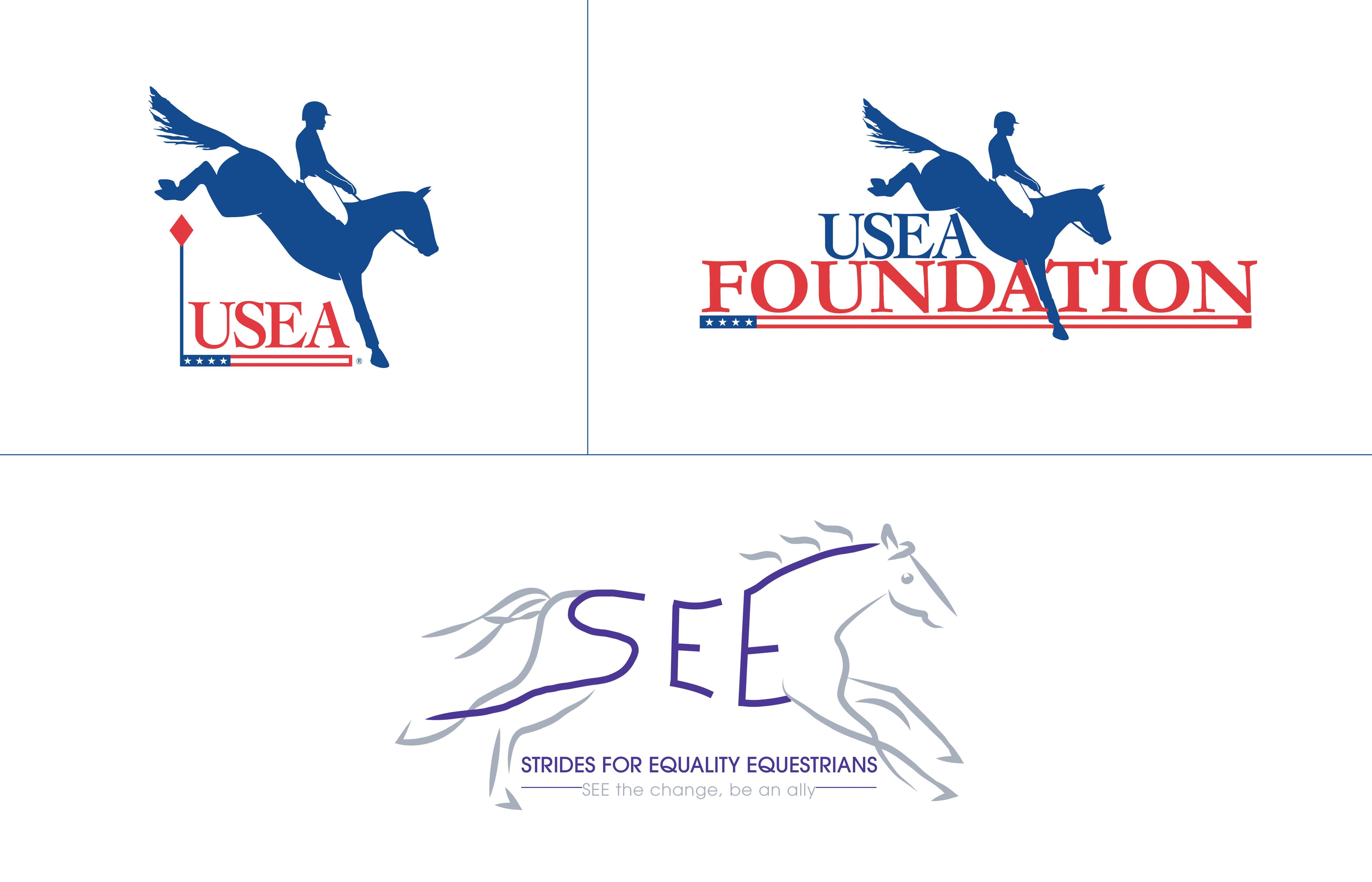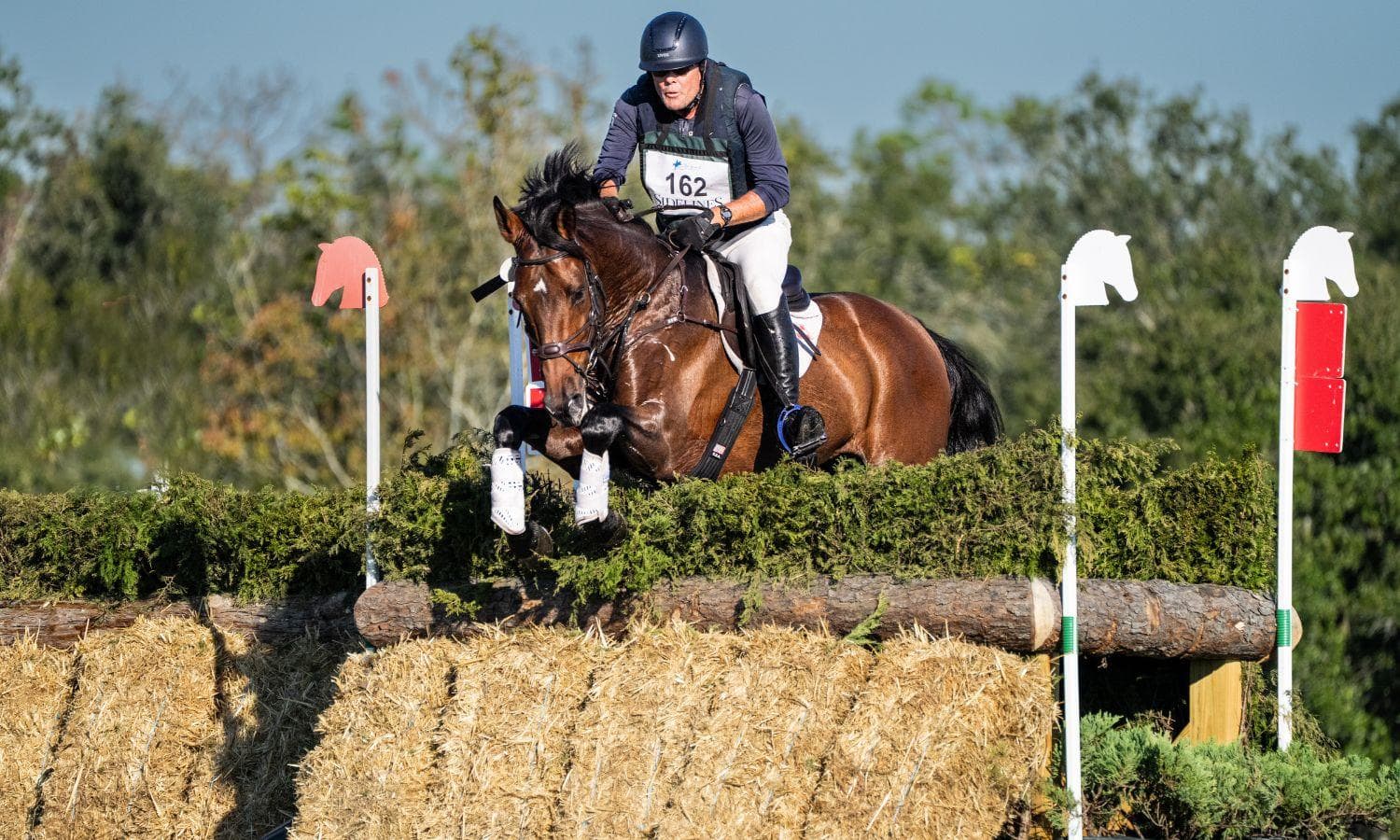USEA Forms DEI Committee and Announces Support of SEE Initiative

The United States Eventing Association (USEA) is proud to announce the formation of a new Diversity, Equity, and Inclusion Committee, and a new partnership between the USEA Foundation and Strides for Equality Equestrians (SEE).
In June of 2020 the USEA Strategic Planning Committee recommended the formation of a Diversity, Equity, and Inclusion (DEI) Committee. In August, a DEI Committee was officially established, and the members were formally approved by the USEA Board of Governors during their November 2020 conference call.
“I am excited to work with this passionate group of committee members in order to advance diversity, equity, and inclusion in eventing,” said USEA President Max Corcoran.
The mission and goals of the USEA’s DEI Committee are to:
- Increase USEA membership by advancing diversity, equity, and inclusion in service to the sport of eventing, for current and prospective members.
- Promote a more inclusive culture within eventing by listening to and addressing the concerns of black, indigenous, people of color (BIPOC), and others within the equestrian community and educating the eventing community on how to be effective allies.
- Advocate for BIPOC representation in USEA leadership positions
- Be a vocal advocate for change within equestrian sports.
The DEI Committee will be co-chaired by Dr. Anastasia Curwood and Heather Gillette. Darrin Mollett and Morgan Rowsell will both act as USEA Board Representatives as members of the committee. Dana Bivens, Matthew Brown, Madison Buening, Catherine Reddick, and William “Randy” Ward III will all serve as members.
“I am honored to take up this important work with a committed and gifted team. And I am excited to help grow the sport of eventing through expanding diversity, equity, and inclusion,” said Co-Chair Dr. Anastasia Curwood.
“I am so pleased to be part of the work being taken on by the staggeringly talented and intelligent people involved with the new USEA DEI Committee,” added Co-Chair Heather Gillette. “Eventing is an amazing sport and we want to increase its accessibility and openness for all current members and new ones alike. We all love our sport, goodness knows we certainly don't do it for the money, why would we not do everything possible to welcome and include everyone who might love it too."
In addition to the formation of the USEA DEI Committee, the USEA is proud to join with the USEA Foundation in announcing its support of the Strides for Equality Equestrians (SEE) initiative. SEE is an allyship program for the eventing and wider equestrian communities and represents a first step towards growing racial and ethnic diversity in our discipline. The goals of SEE align closely to those of the USEA DEI Committee and include promoting a more inclusive culture within the equestrian community that values the participation, voices, and contributions of BIPOC people, while educating others on how to be effective allies. This includes not just riders, but also volunteers, officials, grooms, and everyone who loves horses and horse sports.
The USEA Foundation and SEE have developed a memorandum of understanding in order to facilitate fundraising for the initiative.
“The acronym SEE works very well because we care a lot about visibility,” said Dr. Curwood. “We want BIPOC equestrians to become more visible and part of our communities and we thought having a visible way for all people to show their support for diversity, equity, and inclusion would draw equestrians together. We started with those two small goals, plus the idea of donating what we raise to organizations that are promoting access and education, last summer. Since then our vision has grown to DEI education, an apprenticeship program, and more to come.”
“Strides for Equality Equestrians started as a crazy idea between two friends this past summer with this basic question: How do we make BIPOC equestrians know they are seen and are welcomed? We quite literally started with the simple idea of visible allyship and team building. Wear a pin or a ribbon showing your support for BIPOC horse people,” explained Gillette.
“We are thrilled to be partnering with the USEA Foundation to raise funds through a non-profit program supported by equestrians for equestrians. We have lots to do! Join the team and help SEE the change!” concluded Gillette.
Tax-deductible donations to the USEA Foundation for the SEE Fund can be made through the USEA Foundation website and selecting "Strides for Equality Equestrians" from the drop-down menu. Learn more about SEE at www.stridesforequality.org.















